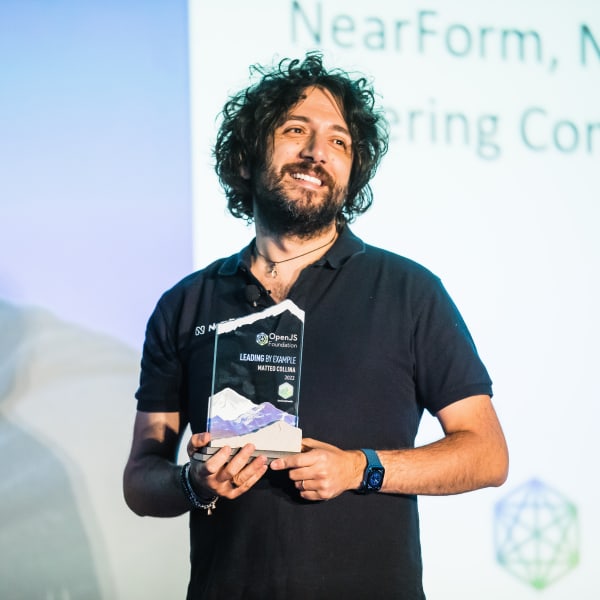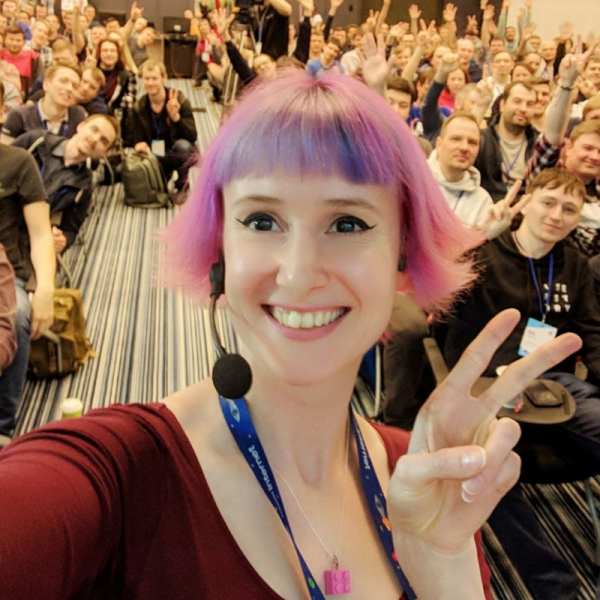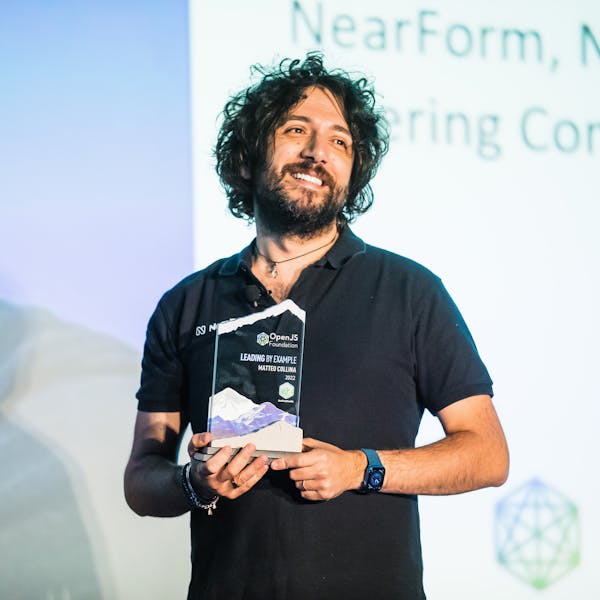




March 26 & 27, 2026
Online 4pm CET / 8am PST / 11am EST
Master Fullstack
JS Backends, DevOps, Architecture
-
5+Workshops &
discussion rooms -
20+Speakers
sharing know-how -
5K+Devs
from all over the globe
IT IS NODE ROCKET SCIENCE
Join us remotely on March 26 & 27, 2026 for a comprehensive update on modern JavaScript backend runtimes, and best practices. Network with top industry engineers and open-source contributors, enhance your skills and find inspiration, friends, and new career opportunities.
Program
Speakers & Trainers
Jo is an Engineer at Deno. She is passionate about improving developer experience, advocating for TypeScript and teaching good use of the web. She mentors junior developers, advocates a lot for mental health awareness and is devoted to improving the diversity and inclusivity of the tech industry.
I work on Agents and MCP at Cloudflare and I'm one of the maintainers of the official MCP Typescript SDK.
At Cloudflare, I get to apply our primitives like Dynamic Worker Loaders and Durable Objects to agents and help some of the leaders in the space build their own.
Previously a professional windsurfer - I raced for Malta at several World and European championships.
Lead engineer of the Cloudflare Workers developer platform, creator of Cap'n Proto and Cap'n Web.
DevRel & Node.js core collaborator
Douglas has been working at Codeminer42 since 2020, taking part in several projects since then, tailoring solutions and providing consultancy on customer's systems. Worked in systems that required queue management for data fetching and ingestion, and scheduling tasks, from financial and blockchain-related solutions to e-commerce platforms.
Tech Lead • Front-End Advocate • Mentor & Educator • Tech Blogger • Published Author • 100+ IT Certifications • 30K+ Followers • Docker Captain • Expert in React.js, Next.js, Angular, DevOps, Web Accessibility & Security
Kristiyan Velkov is a seasoned software developer and technical leader with more than 10 + years of expertise in JavaScript and open-source development. His comprehensive skill set includes: JavaScript, TypeScript, React.js, Angular, Vue.js, Next.js,DevOps,Web accessibility,Security and DevOps. A lifelong learner, Kristiyan has earned over 100 IT certifications. With experience at some of the world’s leading IT organizations, Kristiyan thrives as a technical lead, driving innovative projects and mentoring teams to achieve growth and excellence. His thought leadership has garnered a significant following:
- 30,000 LinkedIn connections
- 7,000 Medium subscribers
- 100,000+ monthly readers
- 4 IT books.
Confidence Okoghenun is a Developer Advocate at Cloudflare, where he bridges the gap between developers and the company’s edge platform, focusing on developer tooling, edge computing, and practical AI integrations. Confidence regularly shares his knowledge through blog posts, conference talks, and open‑source demos, especially around AI‑agent workflows and cutting edge web tech.
Weslley Araújo is a MySQL2 maintainer and the creator of Poku. He builds and maintains widely adopted supply-chain dependencies in the JavaScript open-source ecosystem.
Recognized as a Microsoft MVP, he focuses on developing for developers, sharing knowledge, speaking at events, and inspiring others.
Vinicios Neves is a senior software engineer and educator passionate about building inclusive, performant, and accessible experiences on the web. With over a decade of experience, he helps teams ship React applications that scale — in code quality and in impact. Outside of coding, he shares insights on architecture, testing, and accessibility through talks, articles, and hands-on courses. Currently based in Portugal, he believes the best code is the one everyone can use.
Mike is a developer, Angular Developer Expert for Google, and Developer Advocate at Prisma. Big fan of the web, Mike has been helping people for well over a decade with the simple goal: build cool things!
Our MC's
I'm a marketing technologist and open source community builder, who likes to work with engineering teams that are building products that developers love. Having built both the DevOps Israel and Cloud Native Israelcommunities from the ground up, today I spend my time finding the places where technology and people intersect and ensuring that this is an excellent experience. You can find my talks, articles, and employment experience at rtfmplease.dev.
My primary interest is self development and craftsmanship. I enjoy exploring technologies, coding open source and enterprise projects, teaching, speaking and writing about programming - JavaScript, Node.js, TypeScript, Go, Java, Docker, Kubernetes, JSON Schema, DevOps, Web Components, Algorithms 👋 ⚽️ 🧑💻 🎧
Program Committee
My primary interest is self development and craftsmanship. I enjoy exploring technologies, coding open source and enterprise projects, teaching, speaking and writing about programming - JavaScript, Node.js, TypeScript, Go, Java, Docker, Kubernetes, JSON Schema, DevOps, Web Components, Algorithms 👋 ⚽️ 🧑💻 🎧
Julián Duque is a Developer and Educator, Community Leader, Co-Organizer of NodeConf and JSConf in Colombia, Node.js Collaborator Emeritus, and currently working as a Principal Developer Advocate at Heroku.
I am a software engineer at Deno who works on developer experience, implementing web APIs, improving auto-generated documentation, and more. When I am not programming, I tinker with 3D printers & fly drones.
Ana is a Senior Software Engineer at Clutch, specializing in building scalable, high-quality applications with Node.js and TypeScript, with a strong passion for testing and software reliability. She is a former Google Women Techmakers Ambassador and currently leads one of the largest Node.js communities in Brazil, NodeBR, where she fosters learning and collaboration among developers. Ana also creates advanced technical content through videos and her free newsletter, reaching an audience of around 100,000 followers worldwide. A strong believer in community and knowledge sharing, she balances her tech career with her love for travel, having explored countries across four continents, as well as playing heavy metal bass and practicing yoga.
Gitnation Multipass
Become a better engineer and follow Multipass Exclusive Deep Dives
- Fullstack Development
- Growing to Senior & TechLead
- AI Assisted Coding
Tickets
Looking for discounts and free tickets?
Multipass and full ticket perks
Free workshops

2x more content

Enjoy Full HD streaming quality

Get talk recordings right after the conference

Free Workshops
Take full advantage of your conference experience, and get training from our best speakers and instructors.
Building Model Context Protocol (MCP) Tools for AI Agents with Cloudflare Workers
March 23, 16:00-17:30 CET. Remote via Zoom.

DevOps for JavaScript Developers: From Code to Production
March 24, 16:00-19:00 CET. Remote via Zoom.

Node's Concurrency With the Strength of a Bull With BullMQ
March 25, 16:00-19:00 CET. Remote via Zoom.


Discussions
Explore specific topics in their dedicated discussion rooms on March 27.
Follow us for updates
Your chance to get a free Full ticket
Share your personal badge on X (Twitter) or Linkedin and get a free limited Watch-only Ticket (50% of talks, no workshops). When 3 friends register with your badge you get a free Full Remote Ticket.
Dallas
Sponsors
We're really grateful for all the trust and support our partners shared with us.
Would like to join the community and improve your tech brand?
Check sponsorship opportunities.
-
 NextJS & Headless CMS expert agency
NextJS & Headless CMS expert agencyFocusReactive is a NextJS expert agency with deep expertise in Headless CMS and Headless Commerce. Independent agency partners of Storyblok, Payload CMS, Vercel, Shopify, and Sanity to build fast, scalable, SEO-friendly platforms - and provide NextJS tech & AI SEO audits to optimize existing sites.
-






































